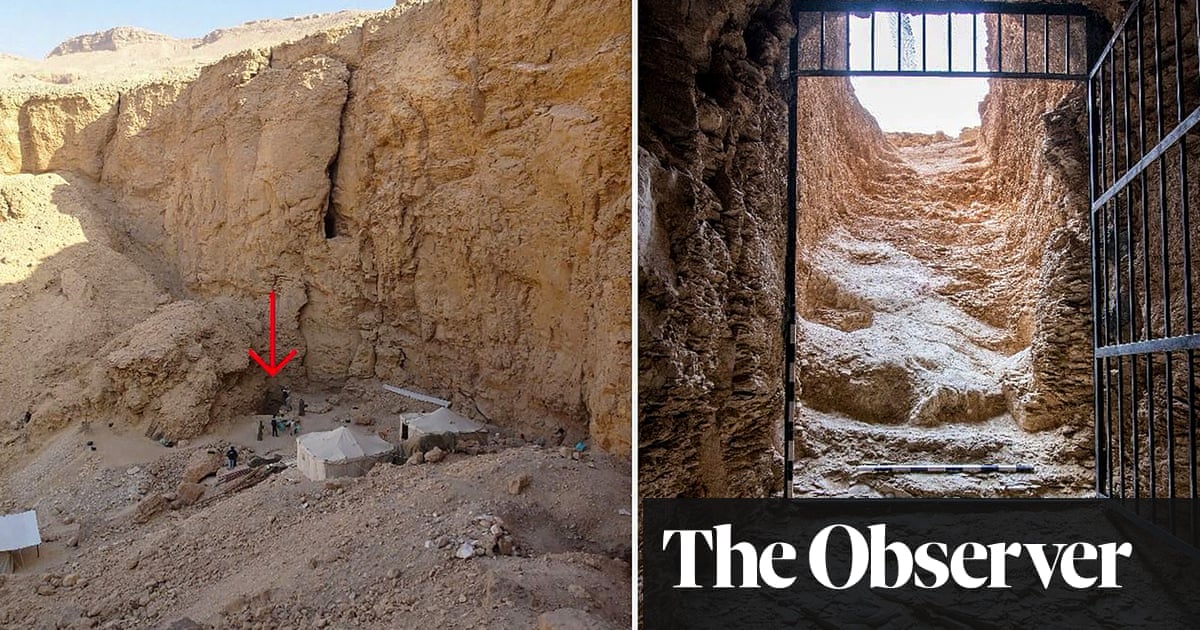At least 480 lobbyists working on carbon capture and storage (CCS) have been granted access to the UN climate summit, known as Cop29, the Guardian can reveal.
That is five more CCS lobbyists than were present at last year’s climate talks, despite the overall number of participants shrinking significantly from about 85,000 to about 70,000.
CCS lobbyists at Cop29 in Baku, Azerbaijan, outnumber the core national delegations from powerful nations including the US and Canada. Nearly half of the lobbyists were granted access as members of national delegations, affording them greater access to negotiations, including 55 who were invited as “guests” by the Azerbaijani government, which is hosting this year’s climate summit, and given what some at the conference are calling “red-carpet treatment.”
The figure, calculated by the Center for International Environmental Law (CIEL) and shared exclusively with the Guardian, comes amid concern from activists that the climate summit is too heavily featuring “false solutions”.
“We are witnessing fossil-fuel greenwashing by those attempting to delay the inevitable fossil fuels phase-out,” said Rachel Kennerley, a campaigner at CIEL. “This large presence of lobbyists is a confirmation that the carbon capture industry is working hard to promote the misguided CCS technology. But governments and companies simply cannot ‘clean’ their coal, oil, and gas by capturing and ‘managing’ emissions.”
On Friday, it was revealed that 1,773 coal, oil, and gas lobbyists have been granted access to the climate talks, including 132 invited by the host country, as the Guardian reported. Many CCS lobbyists granted access appear on the fossil fuel lobbyist list as well.
CCS has been heavily promoted at Cop29, and has also featured heavily in national decarbonisation plans submitted this week, including the UK’s and the UAE’s.
The oil and gas industry has long advocated for CCS. If it is treated as a primary vehicle for decarbonisation, it could allow companies to continue selling fossil fuels and thereby preserve their main business models.
But activists have long derided the technology, noting it does not yet exist at scale and doesn’t address the local harms of fossil fuel extraction, and that it can be dangerous. And despite its branding as a climate solution, it has so far mostly been used to recover carbon from oil wells and then inject it back underground to help squeeze more fuel from depleted fields – a process known as enhanced oil recovery.
The Intergovernmental Panel on Climate Change, the world’s leading climate authority, has said CCS – or CCUS, which includes carbon “utilisation” for fertiliser production or enhanced oil recovery – should play a role in global decarbonisation plans. But last year, the group’s leader said that over-reliance on the technologies could lead the world to surpass climate tipping points.
In 2022, the research organisation Institute for Energy Economics and Financial Analysis found underperforming carbon capture projects outnumbered successful ones by large margins. This year, they found the use of fossil fuels with carbon capture and storage is unlikely to be economically competitive with renewable-based solutions.
“The significant number of CCS lobbyists at Cop29 highlights the fossil fuel industry’s substantial investment in attempting to secure its future, despite the urgent need to phase out fossil fuels,” Kennerley said. “Investing in this expensive and unreliable technology will lock in fossil fuels and waste precious time and money that we cannot afford. Large-scale CCS transport and storage also comes with significant health and safety risks.”
Negotiators approved rules on the use of carbon markets on the first day of the negotiations this week. Carbon market rules fall under article 6 of the 2016 Paris climate agreement, and a subsection of article 6 allows for carbon credits to stem from emissions reductions and removals. CIEL is concerned that the subsection could open the door for the increased reliance on CCS. And the campaigners worry that lobbyists are pushing negotiators to enshrine rules that could boost financing for the technologies.
For the analysis, CIEL pored over the UN’s list of individuals registered to attend Cop29 and disclosed affiliations, totalling up all those who were involved in CCS and CCUS projects as per an International Energy Agency database, and other companies and organisations that have a public track record advocating for the technologies.
Fossil fuel industry documents released by a 2021 US congressional investigation suggest that oil bosses have long been aware of CCUS’s limitations – and its potential as a lifeline for fossil fuels.
Olivia Powis, CEO of the Carbon Capture & Storage Association said: “COP29 is an important opportunity for climate experts, business leaders and governments to address climate change and adopt technologies that reduce emissions.”
“To limit global warming to 1.5 degrees, as per the Paris Agreement, it is essential that we utilise all net zero transitional technologies available,” she said. “CCUS has an important role to play in the reduction of emissions levels through technologies that remove CO2 from the atmosphere, as well as reduce levels of CO2 in the atmosphere through the decarbonisation of industries such as chemicals and cement.”
The Guardian has also contacted the Global CCS Institute for comment.

 3 months ago
55
3 months ago
55













































